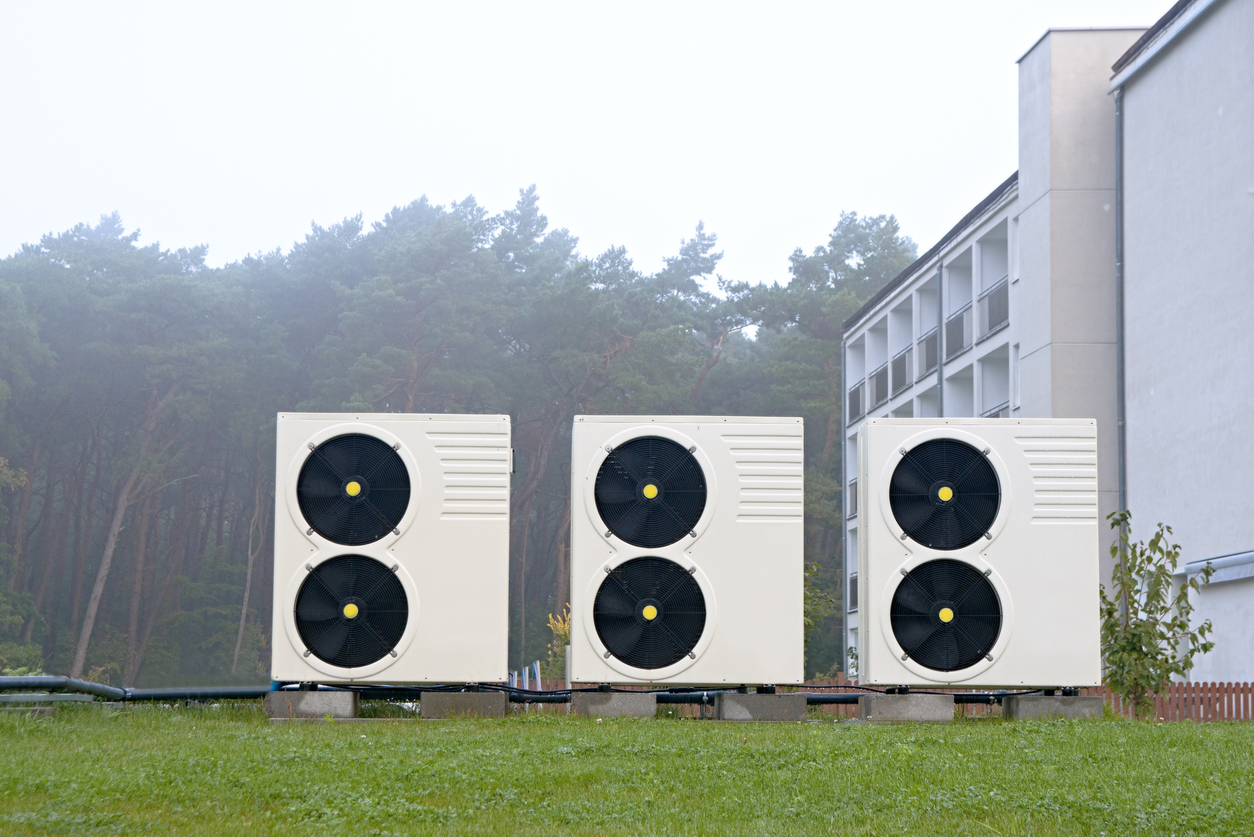Are Heat Pumps Energy Efficient
Are heat pumps energy-efficient HVAC systems? It's a question that arises in the minds of homeowners who want to keep their homes warm without breaking the bank. After all, who doesn't want to find the sweet spot between comfort and cost savings? If this is something you're currently trying to determine, you've come to the right place. Throughout this post, the certified HVAC team at Peel Heating and Air Conditioning is laying out the ins and outs of heat pumps so you can get a better idea about their energy-efficient benefits.
We'll explain how heat pumps work, why they're praised as energy-efficient systems, and what factors can affect their efficiency. Therefore, if you want to learn more about heat pump efficiency readings, keep reading!
How efficient are heat pumps in Canada?
They can be quite efficient, but this is dependent on a number of factors. Things like the type of heat pump, the particular model, and the region's climate, for example, are things that need to be kept in mind.
Air-source heat pumps are becoming increasingly popular in Canada. They function by absorbing heat from the surrounding air. Air-source heat pumps are currently most efficient in areas with moderate climates, such as coastal regions or areas with mild winters, like southern Ontario. When the temperature decreases, efficiency suffers because there is less heat accessible in the air for extraction. But don't be concerned! There are cold-climate heat pumps that have been developed to handle colder temperatures.
The bottom line is that heat pumps can be an excellent choice in Canada if you live in an appropriate climate region. As such, to ensure your home is suitable for this type of HVAC system, make sure you consult a professional HVAC company in your area for advice and guidance.
Do heat pumps use a lot of energy?
Heat pumps are recognized as more energy-efficient than other heating systems in general, but how much energy they use varies depending on a number of factors. A heat pump's energy efficiency is usually determined by its coefficient of performance (COP), which refers to the ratio of its output of heat to electrical power input. Greater energy efficiency is indicated by a higher COP.
Heat pumps can achieve COP values greater than one, which means they are capable of generating more heat energy than they utilize in electricity. Although it is essential to note that to achieve maximum energy efficiency and reduce the use of energy, choose the right-sized heat pump for your space, maintain the unit properly, and carry out energy-saving practices like proper insulating material, proper air leak sealing, and regular service.
How are heat pumps powered?
Heat pumps are electrically powered. In order to run each of the parts involved in the heat transfer procedure, they require electrical energy. In heating mode, a heat pump uses electricity to power the compressor, which moves the cooling fluid and promotes heat exchange. The compressor increases the temperature of the refrigerant and pressure, allowing it to absorb heat from the surrounding atmosphere.
Once the heat has been taken in, the refrigerant transports it to the heat pump's indoor unit. The heat is then released into the interior space via a heat exchanger, providing comfort. The process is reversed during the cooling mode, and the heat pump acts as an air conditioning unit, taking heat from the interior environment and distributing it outside.
Although heat pumps need electricity to function, they can still be more energy-efficient than traditional heaters that rely on burning fossil fuels. The efficiency of a heat pump is determined by factors including the specific model and size of the heat pump itself. Choosing an energy-efficient heat pump and maximizing its use can help you save money on energy while improving heating and cooling performance.
Why is a heat pump more efficient than other types of heating systems?
When it comes to efficiency, the heat pump outperforms other types of heating systems, and here's why. Heat pumps, as opposed to standard heating techniques that depend on burning fuel or electrical resistance, operate through a process known as heat transfer.
Here's how it works: rather than producing heat, heat pumps draw warmth from their surroundings. They can absorb heat from the atmosphere and transfer it inside to keep you warm. This entire process is enabled by a special substance known as refrigerant, which has the extraordinary ability to take in and expel heat as it moves within the heat pump mechanism. Heat pumps are capable of some seriously impressive efficiency ratings by tapping into the natural heat that is already present in the environment. On the flip side, heat pumps can also provide cooling to homes by reversing their heat transfer process and removing heat from within a home to cool down the interior.
Another great advantage of heat pumps is their ability to evenly distribute heat throughout your space. There will be no more hot air blasts or cold spots. Heat pumps provide consistent warmth or cooling, ensuring that you are comfortable without wasting energy.
Of course, factors such as outdoor temperatures, insulation quality, and the specific model and brand of the unit can all have an impact on a heat pump's efficiency. It's always beneficial to consult with an HVAC professional to find the best heat pump for what you need and ensure maximum efficiency. They'll help you make the best decision and keep you warm while being mindful of your budget.
Want to tap into your home's energy efficiency levels by installing a heat pump? If so, you've come to the right place! Peel Heating and Air Conditioning have years of experience partnering with homeowners throughout the Brampton area and neighbouring communities! You can always count on us to get the job completed correctly and efficiently so you can enjoy your new dual heating and cooling system as soon as possible! Contact us for high-quality services and customized solutions at any time!





